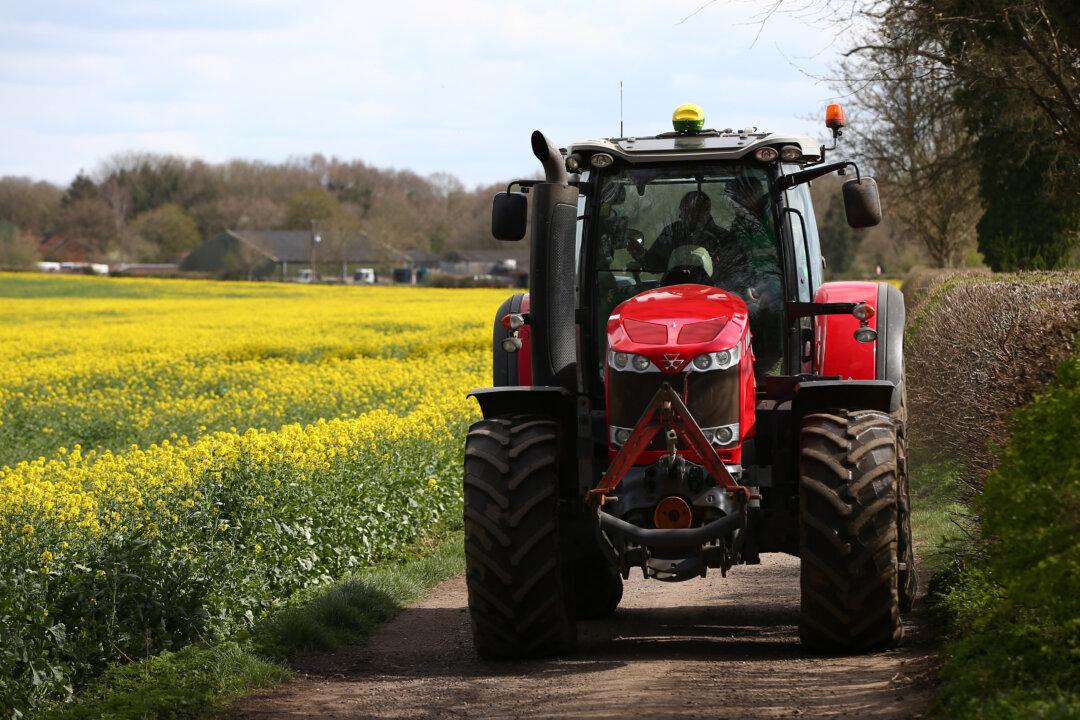A convoy of tractors has rolled into a Victorian town as farmers protest plans to build hundreds of kilometres of powerlines over their properties.
Farmers furious about two projects have rumbled into the western Victorian town of St Arnaud ahead of a meeting about the lines.





